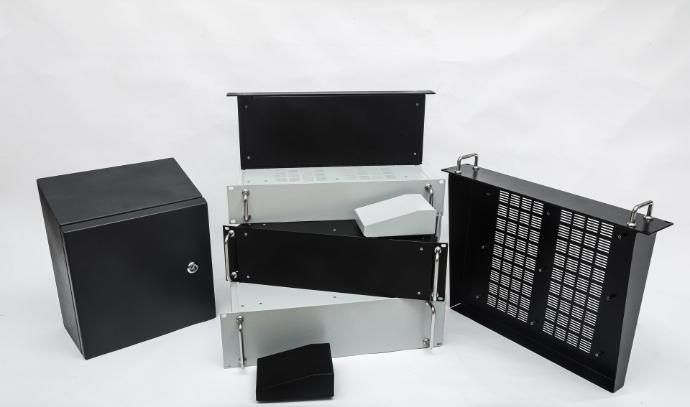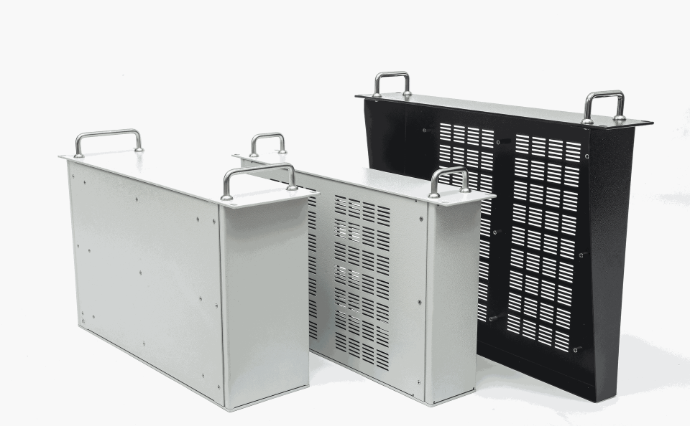In lean manufacturing and in most industrial applications, electronic enclosure serves a very crucial function of containing many processes which include the protection of electronic components and providing an operational space for heavy machinery. They also provide safety, noise control and contamination reduction. Aluminium is one of the common materials used in the manufacture of these electronic enclosures.
Why Are Aluminum Enclosures Preferred?
Here are seven reasons why aluminium enclosure is increasingly popular in different manufacturing environments.

Aluminium has great conductive and shielding abilities. The metal is widely used in manufacturing external shells of such electronics where electronic circuits are sensitive. There is superior transmission line filtering from RFI (radio frequency interference) and EMI (electromagnetic interference) inducing signals due to the usage of aluminium enclosures, thus ensuring the protection of sensitive electronics from outside signals. Moreover, the aluminium casing neutralises electrostatic discharge (ESD), which is a risk to the enclosed equipment.
When it comes to the high use ratio of aluminium with respect to other engineering materials, the most impressive feature has to be the weight. This feature is constantly utilised while constructing enclosures that are designed to be lightweight yet very strong. Aluminium enclosures outperform other materials in resistance to fracture and in turn breakage. They are not prone to tearing or cracking under stress. This makes them highly reliable for housing machinery and components that require maximum protection without adding excessive weight. The ratio between strength and weight provides flexibility and therefore, the components of the enclosure can be easily assembled, transported and installed without fear of damage.
3. Unparalleled Corrosion ResistanceAnother common problem faced in a factory and production environment is the contact of work with aggressive elements or weather conditions. Aluminium does not corrode easily, mainly against salt water or adverse weather conditions. This ensures that aluminium enclosures will not break down in long periods of UV exposure. Selecting aluminium to build enclosures means less maintenance cost. Lower cost of replacing parts and longer useful life produce more profit and eco-friendliness.
4. Durable in Extreme TemperaturesThe ability of aluminium to retain its properties in different temperatures is also one of the features that help its usability. It has a low degree of thermal expansion, which means that dispensing high temperatures does not result in any distortion and hence can withstand processes that incorporate heat generation or any other thermal sources. Likewise, other conditions like cold do not make aluminium fragile, it remains ductile up to a point and gets tensile strength, thus making it less halts to cracks or any weakness. This feature to sustain in extreme and varied temperatures encourages their use in aluminium enclosures in different applications irrespective of the climate.
5. High Safety StandardsOne of the most important things in the processes of manufacturing is safety, and the usage of aluminium ensures their compliance with the most severe safety regulations. Food and sanitary applications are acceptable for aluminium as it is safe, tasteless, odourless, and does not retain any moisture. It is also sustainable since aluminium can be recycled completely. Hence, industries focused on minimising their carbon footprints find aluminium useful.
6. Excellent Heat DissipationAluminium is used in applications like enclosures for component parts where the heat generated is high. Aluminium enclosures can get rid of the generated heat quite fast and effectively. This helps in ensuring that optimum temperature is maintained for the equipment in the enclosure. This is especially helpful in cases of electronics or machinery, where the aluminium casing draws heat away, preventing overheating, and in turn, prolonging the lifespans of delicate parts. Aluminium is highly reflective and can reflect more than 80% of heat radiation such as sunlight which is another insulating factor from external heat sources and helps in cooling the internal structures.
7. Customization FlexibilityThe various manufacturing requirements necessitate specially designed enclosures that fulfil the requirements of a particular process or product. Aluminum enclosures offer versatile customization options due to its exceptional ease of shaping and adaptability. Custom Aluminum manufacturing suppliers partner with customers and design-oriented employees to provide enclosures that are not only soundproof but also shielded from foreign material and guarantee health and safety codes are met.
Conclusion
Aluminum enclosures are highly sought after for their remarkable benefits, including excellent electrical insulation, corrosion resistance, and the ability to withstand extreme temperatures. These features make them an ideal solution for protecting sensitive electronics and machinery in a variety of environments.

At Mech Power, we provide sheet metal fabrication services to deliver fully customizable aluminum enclosures tailored to your exact specifications. Additionally, our range of ready-to-use enclosures, including 19" rack mount enclosures, wall mount enclosures, desktop enclosures, and more, ensures there’s a solution for every requirement.
For all aluminum enclosure requirements, call us at (+91) 98984 12126 or email us at [email protected]

